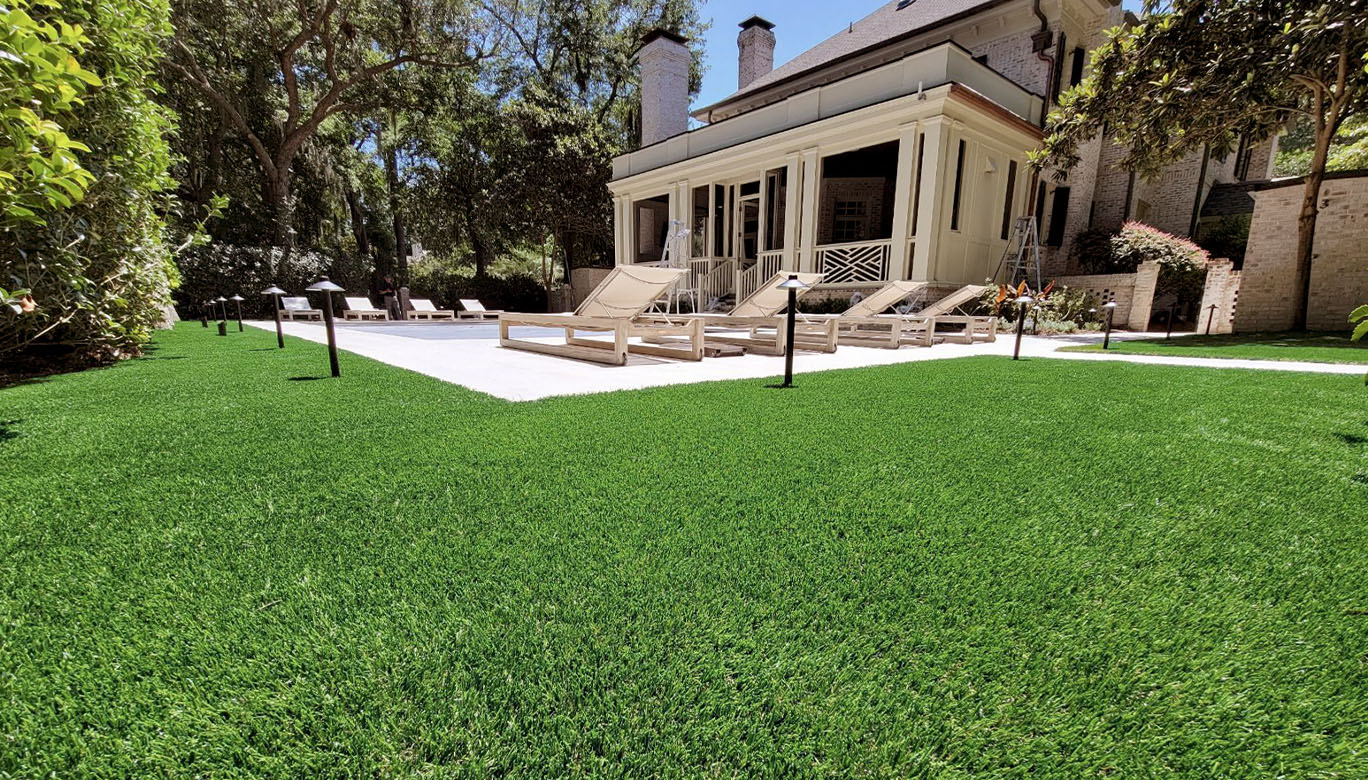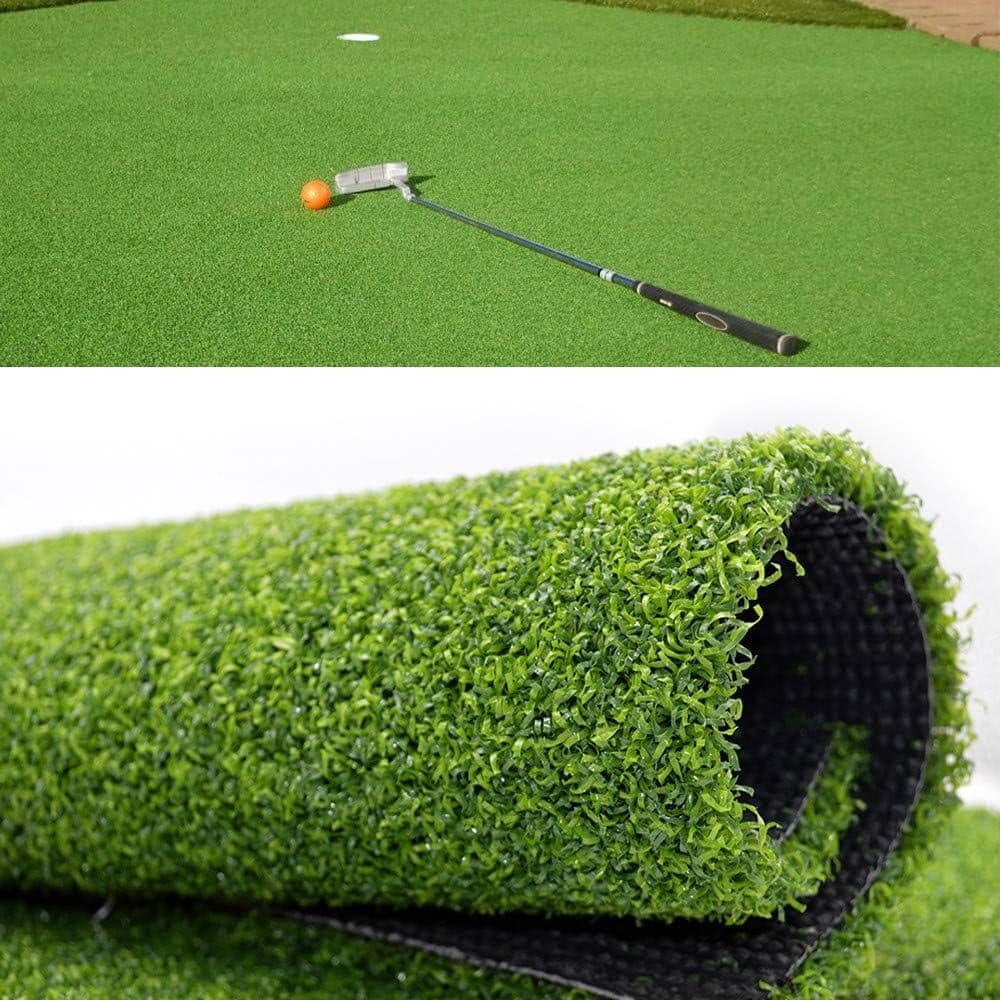Experience a Perfect Lawn with Arizona Artificial Turf for Any Outdoor Space
Experience a Perfect Lawn with Arizona Artificial Turf for Any Outdoor Space
Blog Article
See Why Homeowners Prefer Artificial Turf for Lasting Landscape Design Practices
As home owners significantly focus on sustainability in landscape design, synthetic grass has actually become a compelling alternative to traditional grass. Its capacity to preserve water, lower upkeep efforts, and reduce environmental influence placements it as a functional option for those seeking green options. The visual charm and flexibility of artificial lawn cater to diverse layout preferences. The ramifications of this change prolong past simple ease and looks, prompting a more detailed assessment of how these options influence wider ecological results. What continues to be to be explored is the complete scope of advantages that artificial grass can supply to house owners and the setting alike.
Water Conservation Conveniences
One of the most significant advantages of artificial turf is its role in water preservation. In contrast, synthetic turf eliminates this demand totally, as it does not call for watering.
Additionally, the installment of synthetic grass can add to an extra lasting landscape. Home owners can dramatically decrease their water expenses, enabling reallocation of sources to various other environmental initiatives or household usages. Furthermore, synthetic turf is designed to withstand various weather conditions without the need for supplemental watering, making it an ideal selection for regions facing water scarcity.
The ecological advantages extend past instant water savings. By lowering water usage, synthetic turf aids to alleviate the impacts of environment modification, preserving crucial environments that are threatened by too much water extraction. As lasting landscaping practices get traction, synthetic grass becomes an accountable choice for home owners seeking to develop environment-friendly outdoor areas.
Reduced Upkeep Initiatives
Artificial grass significantly minimizes upkeep efforts contrasted to traditional turf yards. With synthetic yard, property owners can remove the time-consuming tasks linked with all-natural landscaping, such as mowing, fertilizing, and weeding. This not only conserves beneficial time but likewise lowers physical labor, making lawn care easily accessible for people of any ages.
Among one of the most notable advantages is the lack of normal mowing. Typical lawns require regular cutting to keep a cosmetically pleasing height, whereas synthetic grass stays constantly lush without the requirement for cutting. Furthermore, home owners no much longer require to use chemicals or fertilizers, which are commonly called for to maintain all-natural yard healthy and balanced. This change not just lightens the work but also promotes a neater, more uniform appearance year-round.
In addition, man-made grass is long lasting and durable, needing minimal maintenance beyond occasional cleaning and washing to remove particles. This convenience of upkeep enables homeowners to appreciate their outside spaces without the consistent concern of upkeep, giving even more time for recreation and family members activities. Eventually, the lowered maintenance efforts related to artificial lawn make it an attractive option for those looking for a low-maintenance, visually appealing landscape.

Ecological Influence Decrease
There is an expanding acknowledgment of the ecological advantages associated with synthetic grass, especially in terms of water conservation and minimized chemical Full Article use. Standard yards call for substantial amounts of water, particularly in drought-prone regions, causing boosted stress on regional water resources. In contrast, synthetic grass gets rid of the demand for watering, substantially lowering water intake and advertising sustainability.
Additionally, standard grass upkeep commonly involves the application of herbicides, pesticides, and fertilizers, which can contribute to soil and water air pollution. Synthetic grass reduces this environmental threat by needing very little maintenance and essentially eliminating the demand for unsafe chemicals. This not just enhances dirt health and wellness but additionally secures neighborhood environments from harmful overflow.
Additionally, the production of natural turf yards typically entails using nonrenewable fuel sources for trimming and landscaping tools, additional adding to greenhouse gas discharges. By selecting synthetic grass, property owners can significantly reduce their carbon impact connected with grass care tasks.
Aesthetic Allure and Adaptability
Along with its ecological advantages, synthetic grass supplies significant visual appeal and flexibility for landscaping. Home owners can attain a lush, green appearance year-round, getting rid of the seasonal variations generally connected with natural lawn. This regular visual not just enhances the visual charm of a property but also contributes to a properly maintained and sleek appearance.
In addition, synthetic grass is readily available in a selection of designs, structures, and colors, enabling customization to suit individual choices and layout styles - Arizona turf. Whether used in property gardens, commercial rooms, or entertainment locations, it can perfectly integrate right into varied landscape design layouts, from contemporary minimalist to lush exotic settings
The flexibility of synthetic grass prolongs beyond plain look; it can be installed in numerous places, including roofs, outdoor patios, and even interior spaces, developing chances for distinct landscaping remedies. Furthermore, it is suitable for a variety of activities, from youngsters's backyard to pet-friendly environments, offering capability without jeopardizing style.
Ultimately, the aesthetic allure and adaptability of synthetic grass make it an eye-catching option for house owners looking for sustainable landscaping remedies that do not give up elegance for environmental duty.

Long-Term Cost Savings
One of the most engaging benefits of fabricated lawn is its possibility for lasting price financial savings. Unlike natural grass, which calls for regular upkeep-- consisting of mowing, watering, feeding, and bug control-- fabricated grass substantially minimizes these continuous costs. Homeowners can conserve a considerable amount on water bills, specifically in areas where water shortage is a pressing concern. The removal of yard care solutions additionally contributes navigate to this site to financial cost savings, as there is no requirement for specialized tools or labor.
In addition, synthetic grass has advice a life expectancy of 15 to 25 years, depending on its top quality and usage. This durability lessens replacement expenses, making it a more cost-effective selection in the future. Furthermore, the preliminary investment in man-made lawn can typically be recouped with the financial savings accrued with time.
While the in advance price might seem higher contrasted to turf installation, the advancing cost savings from lowered maintenance and water usage commonly outweigh these initial expenditures. Inevitably, the fostering of artificial grass not just advertises a sustainable landscaping service however likewise provides homeowners a monetarily wise option that aligns with lasting budgeting goals.
Final Thought
Fabricated lawn emerges as a compelling option for sustainable landscaping, providing considerable benefits in water preservation, minimized upkeep initiatives, and lessened ecological influence. Its visual allure and versatility enhance the visual landscape while straightening with modern sustainability goals. Lasting expense savings contribute to its attractiveness for property owners. As communities increasingly focus on eco-friendly methods, the adoption of synthetic turf stands for a dynamic step toward accomplishing sustainable and resilient landscapes.
Furthermore, fabricated grass is designed to stand up to different weather conditions without the demand for additional watering, making it a perfect selection for regions dealing with water scarcity. (Phoenix turf companies)

Artificial lawn emerges as a compelling alternative for lasting landscaping, offering substantial benefits in water conservation, lowered upkeep efforts, and lessened ecological impact.
Report this page